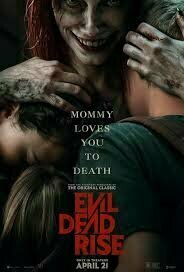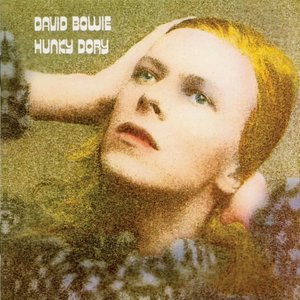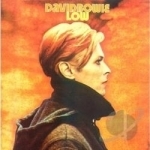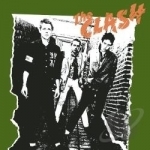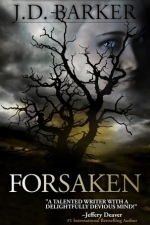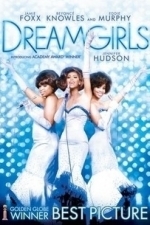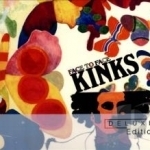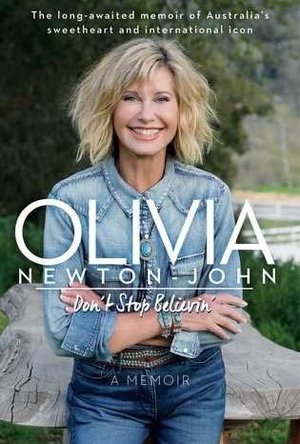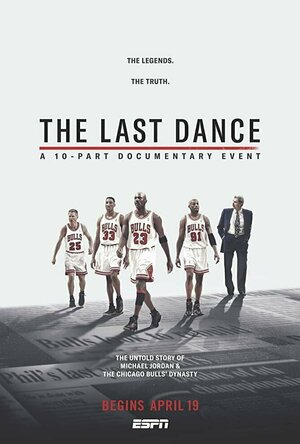Search
Search results
Gareth von Kallenbach (980 KP) rated Evil dead rise (2023) in Movies
Apr 19, 2023
Usually when a film series is embarking on a fifth outing the challenges
of keeping things fresh and original yet being new and creative can be a
massive obstacle.
Horror series ranging from “Halloween” to “Friday the 13th”, “SAW”, and
“A Nightmare on Elm Street” all faced issues with moving the series along
yet trying to stay true to the original film that inspired them and in
every case; failing to fully capture what made the original film a hit.
“Evil Dead Rise” is not only the latest entry into the series but a bold
take on the cinematic series as it abandons the remote cabin setting of
the first two films and the reboot in favor of an urban setting.
The film does open in a remote lakeside locale before jumping a day
earlier to California where estranged sisters Ellie (Alyssa Sutherland)
and Beth (Lilly Sullivan) reunite. Beth has been working as a guitar
technician and bristles that her sister refers to her as a groupie.
Ellie is raising three children after their father left and informs her
sister that the building they are living in is scheduled to be demolished
so they will have to move soon which is a shock to Beth as she has learned
that she is pregnant and is trying to figure out her life all the while
seeing what she thought would be a source of stability for her upended.
The arrival of an earthquake allows access to a hidden area in the parking
garage of their building and since the locale was a former bank; the kids
soon find a hidden book and records which the only son Danny (Morgan
Davies) hopes he can sell despite his sister Bridget (Gabrielle Echols)
admonishing him constantly to leave it alone and return it to where it was
found.
The book turns out to be a Necronomicon or “Book of the Dead” and as fans
of the series know; nothing good ever comes from one and thanks to playing
old records left by a Priest describing his thoughts on the book; a
summoning incantation is read and this causes Ellie to become possessed
and unleash grotesque carnage and terror on her family.
What follows is a gory and at times intense game of cat and mouse
punctuated by moments of levity as the demonic infestation knows no end.
The film has the over-the top- gore that is expected of the series and the
makeup and effects are very effective. Writer?Director Lee Cronin has done
a great job capturing the tone of the series while moving it forward as he
cleverly incorporates lines and nods to the series without making them
seem forced.
Some may find the excess of blood too much but the series has always been
known for taking things to the extreme as the blend of horror and comedic
parody is what made the original film such a success.
In the end “Evil Dead Rise” does enough to keep fans of the series happy
and hopefully we will be seeing a new entry in the series in the future.
3.5 stars out of 5
of keeping things fresh and original yet being new and creative can be a
massive obstacle.
Horror series ranging from “Halloween” to “Friday the 13th”, “SAW”, and
“A Nightmare on Elm Street” all faced issues with moving the series along
yet trying to stay true to the original film that inspired them and in
every case; failing to fully capture what made the original film a hit.
“Evil Dead Rise” is not only the latest entry into the series but a bold
take on the cinematic series as it abandons the remote cabin setting of
the first two films and the reboot in favor of an urban setting.
The film does open in a remote lakeside locale before jumping a day
earlier to California where estranged sisters Ellie (Alyssa Sutherland)
and Beth (Lilly Sullivan) reunite. Beth has been working as a guitar
technician and bristles that her sister refers to her as a groupie.
Ellie is raising three children after their father left and informs her
sister that the building they are living in is scheduled to be demolished
so they will have to move soon which is a shock to Beth as she has learned
that she is pregnant and is trying to figure out her life all the while
seeing what she thought would be a source of stability for her upended.
The arrival of an earthquake allows access to a hidden area in the parking
garage of their building and since the locale was a former bank; the kids
soon find a hidden book and records which the only son Danny (Morgan
Davies) hopes he can sell despite his sister Bridget (Gabrielle Echols)
admonishing him constantly to leave it alone and return it to where it was
found.
The book turns out to be a Necronomicon or “Book of the Dead” and as fans
of the series know; nothing good ever comes from one and thanks to playing
old records left by a Priest describing his thoughts on the book; a
summoning incantation is read and this causes Ellie to become possessed
and unleash grotesque carnage and terror on her family.
What follows is a gory and at times intense game of cat and mouse
punctuated by moments of levity as the demonic infestation knows no end.
The film has the over-the top- gore that is expected of the series and the
makeup and effects are very effective. Writer?Director Lee Cronin has done
a great job capturing the tone of the series while moving it forward as he
cleverly incorporates lines and nods to the series without making them
seem forced.
Some may find the excess of blood too much but the series has always been
known for taking things to the extreme as the blend of horror and comedic
parody is what made the original film such a success.
In the end “Evil Dead Rise” does enough to keep fans of the series happy
and hopefully we will be seeing a new entry in the series in the future.
3.5 stars out of 5
Marc Riley recommended Hunky Dory by David Bowie in Music (curated)
Graham Massey recommended Low by David Bowie in Music (curated)
Bobby Gillespie recommended Clash by The Clash in Music (curated)
Lyndsey Gollogly (2893 KP) rated Forsaken (Shadow Cove Saga #1) in Books
Sep 22, 2019
Book One of the Shadow Cove Saga
Inspired by Actual Events
Excerpt from the Journal of Clayton Stone - 1692
She was examined today without torture at Shadow Cove township on the charge of witchcraft. She said she was wholly innocent of the crime and has never in life renounced God. I watched as they brought her out. A poor, sickly thing, worn by her time behind the walls of her prison. Her bared feet and hands bound in leather, her clothing tattered to that of ruin. Despite such condition, her head was held high, her eyes meeting those of her accusers. Upon being stripped and examined, on her right side is found a bluish mark, much like a clover leaf; it was thrice pricked therein but she felt no pain and no blood flowed from the wound. She still refuses to provide her name so we remain unable to search baptismal records, nor has her family stepped forward to claim her as their own. We have no reason to believe she is anything but an orphaned child. I find myself unable to look at her directly in the moments preceding her trial. She is watching me though; with eyes of the deepest blue, she is watching me.
Thad McAlister, Rise of the Witch
When horror author Thad McAlister began his latest novel, a tale rooted in the witch trials of centuries past, the words flowed effortlessly. The story poured forth, filling page after page with the most frightening character ever to crawl from his imagination. It was his greatest work, one that would guarantee him a position among the legends of the craft.
But was it really fiction?
He inadvertently opened a door, one that would soon jeopardize the lives of his family.
She wants to come back.
At home, his wife struggles to keep their family alive. Secretly wondering if she caused it all...a deal she made long ago. A deal with the Forsaken.
<strong>Strange but gripping</strong>
Ok so it was so good. The right amount of spooky and scarlet that made you keep turning the pages. The little pixie creatures reminded me of something Del Toro has used in his films. Highly recommend.
Not much more to really say it's one of those books you just need to read!
Inspired by Actual Events
Excerpt from the Journal of Clayton Stone - 1692
She was examined today without torture at Shadow Cove township on the charge of witchcraft. She said she was wholly innocent of the crime and has never in life renounced God. I watched as they brought her out. A poor, sickly thing, worn by her time behind the walls of her prison. Her bared feet and hands bound in leather, her clothing tattered to that of ruin. Despite such condition, her head was held high, her eyes meeting those of her accusers. Upon being stripped and examined, on her right side is found a bluish mark, much like a clover leaf; it was thrice pricked therein but she felt no pain and no blood flowed from the wound. She still refuses to provide her name so we remain unable to search baptismal records, nor has her family stepped forward to claim her as their own. We have no reason to believe she is anything but an orphaned child. I find myself unable to look at her directly in the moments preceding her trial. She is watching me though; with eyes of the deepest blue, she is watching me.
Thad McAlister, Rise of the Witch
When horror author Thad McAlister began his latest novel, a tale rooted in the witch trials of centuries past, the words flowed effortlessly. The story poured forth, filling page after page with the most frightening character ever to crawl from his imagination. It was his greatest work, one that would guarantee him a position among the legends of the craft.
But was it really fiction?
He inadvertently opened a door, one that would soon jeopardize the lives of his family.
She wants to come back.
At home, his wife struggles to keep their family alive. Secretly wondering if she caused it all...a deal she made long ago. A deal with the Forsaken.
<strong>Strange but gripping</strong>
Ok so it was so good. The right amount of spooky and scarlet that made you keep turning the pages. The little pixie creatures reminded me of something Del Toro has used in his films. Highly recommend.
Not much more to really say it's one of those books you just need to read!
Gareth von Kallenbach (980 KP) rated Dreamgirls (2006) in Movies
Aug 14, 2019
The rise of Motown records is one of the music industries greatest tales. Berry Gordy Jr. in 1959 established the record label that not only made stars of numerous talents such as Diana Ross and the Supremes and the Jackson 5, but helped African American talents finds success in other markets and mainstream radio.
In the film Dreamgirls, Director/Screenwriter Bill Condon brings the book and musical of the same name to the big screen with style and energy, and tells an inspired and entertaining story.
Though the names have been changed, it does not take much effort to discover that many parts in the film are indeed based upon actual people, and situations, which only ads to the story and characters, as though seeing a work of fiction, there is some factual basis to what is being shown.
Beyonce’ Knowles stars as Deena Jones, who is the lead singer in a female trio who hope to get noticed at a local talent show. While the group fails to win, they do attract the attention of Curtis Taylor Jr. (Jaime Foxx), a local manager who runs a car dealership during the day.
Curtis takes the girls under his management and soon begins a relationship with Effie, (Jennifer Hudson), as the band begins to get notice. Curtis uses bribes to get the girls played on white radio stations and soon has a hit on his hands and forms his own record label in order for his talent.
While on tour with R&B legend James Thunder Early (Eddie Murphy), the decision is made to make Deena sing lead over Effie which leads to tensions in the band despite their growing success.
What follows is a tale full of love, loss, success, failure, redemption, and laughs as the dynamic tale of the girls and their career is told over the passage of several years.
While much has been made of the singing of Beyonce’ and Jennifer Hudson, Eddie Murphy was clearly the star of the film as he brought a dynamic energy to the film whenever he was on screen. Murphy amazingly blended comedy and music as he performed his own material as well as generated sympathy as the troubled singer, who is trying to hold onto fleeting fame amongst changing times and gives and Oscar worthy performance.
The songs of the film are very well done, though at times, some of them dragged on to long for my taste, and at times hampered the narrative portion of the film.
That being said, Dreamgirls is one of the best musical to hit the screen and if for no reason other than Murphy’s performance is must see film.
In the film Dreamgirls, Director/Screenwriter Bill Condon brings the book and musical of the same name to the big screen with style and energy, and tells an inspired and entertaining story.
Though the names have been changed, it does not take much effort to discover that many parts in the film are indeed based upon actual people, and situations, which only ads to the story and characters, as though seeing a work of fiction, there is some factual basis to what is being shown.
Beyonce’ Knowles stars as Deena Jones, who is the lead singer in a female trio who hope to get noticed at a local talent show. While the group fails to win, they do attract the attention of Curtis Taylor Jr. (Jaime Foxx), a local manager who runs a car dealership during the day.
Curtis takes the girls under his management and soon begins a relationship with Effie, (Jennifer Hudson), as the band begins to get notice. Curtis uses bribes to get the girls played on white radio stations and soon has a hit on his hands and forms his own record label in order for his talent.
While on tour with R&B legend James Thunder Early (Eddie Murphy), the decision is made to make Deena sing lead over Effie which leads to tensions in the band despite their growing success.
What follows is a tale full of love, loss, success, failure, redemption, and laughs as the dynamic tale of the girls and their career is told over the passage of several years.
While much has been made of the singing of Beyonce’ and Jennifer Hudson, Eddie Murphy was clearly the star of the film as he brought a dynamic energy to the film whenever he was on screen. Murphy amazingly blended comedy and music as he performed his own material as well as generated sympathy as the troubled singer, who is trying to hold onto fleeting fame amongst changing times and gives and Oscar worthy performance.
The songs of the film are very well done, though at times, some of them dragged on to long for my taste, and at times hampered the narrative portion of the film.
That being said, Dreamgirls is one of the best musical to hit the screen and if for no reason other than Murphy’s performance is must see film.
Britt Daniel recommended Face to Face by The Kinks in Music (curated)
Heather Cranmer (2721 KP) rated Don't Stop Believin' in Books
May 28, 2019
I was obsessed with Olivia Newton-John as a little girl. As a little girl, I knew all of her songs by heart, and I had watched all of her movies over and over. I do admit that as I grew up, my obsession faded. However, when I saw Olivia's autobiography, Don't Stop Believin', on the shelf at my local library, I decided to give it a read. While it was enjoyable, it just came across as kind of preachy.
Olivia Newton-John rose to fame in the United States as the character of Sandy in the movie Grease. She also had a bunch of hit songs and records afterwards. Olivia's autobiography does mention her rise to fame although I felt as if there wasn't enough time spent on her rise to fame. She does write about her time with Grease and other films as well as recording her songs throughout the book. I felt the movies and songs were written about well.
We get a taste of her life as a child in England and Australia, although I felt she didn't discuss her pre-fame life too much. I would have liked to read more about her childhood instead of just being rushed into when she started performing. I know Olivia Newton-John likes to keep her private life out of the limelight, but when writing an autobiography, it's important to give the reader a little more details than what Don't Stop Believin' gave us.
There was so much name dropping throughout this book! While I understand that famous people know other famous people, sometimes I felt as if Olivia was dropping names just for show instead of because it fit the story. You have a lot of famous friends. We get it!
Another thing that annoyed me about the book was how some parts seemed like an advertisement for her Olivia Newton-John Cancer Wellness and Research Centre as well as for her husband, John Easterling's, herb company. I know she's done so much for her cancer center, (which I give her mad props for), but she goes on and on about how great and lovely of a place it was especially after she was an inpatient there. Of course the staff would treat her better when her name is on the building! There's more than one chapter devoted to how great the place is. I'm sure it is lovely, but I felt like I didn't need to a chapter (and more) about how great it is. As for her husband's herb company, she went on and on towards the end of the book how his herbs really helped her out which is great, but again, does the reader really need the specifics and being told over and over again how helpful it was?
The major thing that annoyed me was how preachy Don't Stop Believin' was in a lot of chapters. In fact, it made me feel guilty sometimes that I rely on modern medicine. Olivia writes how she'd rather take the natural approach to fighting off viruses and diseases, and I get that because I don't like to take medicine needlessly either, but sometimes, it's the best thing. However, I just felt that Olivia was berating those who choose to go the medicinal route. I felt like she was implying that natural remedies work better than modern medicine. This can be dangerous especially if someone gets off their medicines they need to survive to try the natural approach. People should always discuss any changes of medication with their doctors.
To me, Don't Stop Believin' writes like someone who's always been privileged and sheltered throughout their life. A lot of it feels like Olivia Newton-John is out of touch with reality and like she's living in La-La Land. I just found it hard to relate to her throughout the book. Yes, she has gone through some hardships such as deaths in the family, her cancer diagnoses, and her ex-boyfriend disappearing, but for the most part, her autobiography is just too sunshine and rainbows for me to truly relate.
Don't Stop Believin' flows beautifully though, and the writing is done very well, so it has that going for it. I did find myself enjoying the book most of the time when Olivia wasn't been preachy or advertising something. There were some interesting tidbits about her life throughout the book.
Trigger warnings include some profanity use, death, cancer, drinking, and smoking.
Overall, Don't Stop Believin' isn't a bad book, quite the contrary. It's just a bit too hippie dippy for me to have truly enjoyed it to its fullest. I did find the book interesting though despite some flaws. I would recommend Don't Stop Believin' by Olivia Newton-John especially to those who have been diagnosed with cancer as this book does come with a bunch of positivity when it comes to dealing with cancer.
Olivia Newton-John rose to fame in the United States as the character of Sandy in the movie Grease. She also had a bunch of hit songs and records afterwards. Olivia's autobiography does mention her rise to fame although I felt as if there wasn't enough time spent on her rise to fame. She does write about her time with Grease and other films as well as recording her songs throughout the book. I felt the movies and songs were written about well.
We get a taste of her life as a child in England and Australia, although I felt she didn't discuss her pre-fame life too much. I would have liked to read more about her childhood instead of just being rushed into when she started performing. I know Olivia Newton-John likes to keep her private life out of the limelight, but when writing an autobiography, it's important to give the reader a little more details than what Don't Stop Believin' gave us.
There was so much name dropping throughout this book! While I understand that famous people know other famous people, sometimes I felt as if Olivia was dropping names just for show instead of because it fit the story. You have a lot of famous friends. We get it!
Another thing that annoyed me about the book was how some parts seemed like an advertisement for her Olivia Newton-John Cancer Wellness and Research Centre as well as for her husband, John Easterling's, herb company. I know she's done so much for her cancer center, (which I give her mad props for), but she goes on and on about how great and lovely of a place it was especially after she was an inpatient there. Of course the staff would treat her better when her name is on the building! There's more than one chapter devoted to how great the place is. I'm sure it is lovely, but I felt like I didn't need to a chapter (and more) about how great it is. As for her husband's herb company, she went on and on towards the end of the book how his herbs really helped her out which is great, but again, does the reader really need the specifics and being told over and over again how helpful it was?
The major thing that annoyed me was how preachy Don't Stop Believin' was in a lot of chapters. In fact, it made me feel guilty sometimes that I rely on modern medicine. Olivia writes how she'd rather take the natural approach to fighting off viruses and diseases, and I get that because I don't like to take medicine needlessly either, but sometimes, it's the best thing. However, I just felt that Olivia was berating those who choose to go the medicinal route. I felt like she was implying that natural remedies work better than modern medicine. This can be dangerous especially if someone gets off their medicines they need to survive to try the natural approach. People should always discuss any changes of medication with their doctors.
To me, Don't Stop Believin' writes like someone who's always been privileged and sheltered throughout their life. A lot of it feels like Olivia Newton-John is out of touch with reality and like she's living in La-La Land. I just found it hard to relate to her throughout the book. Yes, she has gone through some hardships such as deaths in the family, her cancer diagnoses, and her ex-boyfriend disappearing, but for the most part, her autobiography is just too sunshine and rainbows for me to truly relate.
Don't Stop Believin' flows beautifully though, and the writing is done very well, so it has that going for it. I did find myself enjoying the book most of the time when Olivia wasn't been preachy or advertising something. There were some interesting tidbits about her life throughout the book.
Trigger warnings include some profanity use, death, cancer, drinking, and smoking.
Overall, Don't Stop Believin' isn't a bad book, quite the contrary. It's just a bit too hippie dippy for me to have truly enjoyed it to its fullest. I did find the book interesting though despite some flaws. I would recommend Don't Stop Believin' by Olivia Newton-John especially to those who have been diagnosed with cancer as this book does come with a bunch of positivity when it comes to dealing with cancer.
Kirk Bage (1775 KP) rated The Last Dance in TV
Aug 6, 2020 (Updated Aug 6, 2020)
Some people’s worst nightmare isn’t just being forced to watch sport, but being forced to listen to commentary or analysis on sport. My passion for a competitive event, and appreciation for an acheivement at the highest level in any sport, is still there, but is a little cooler than it was when I was a younger man with the energy to get carried away, whooping and cheering on an underdog or applauding the very best in a discipline.
Basketball for me has never really been a thing. To be honest, I barely understand the rules beyond the basics. It just wasn’t something that was on British TV that often as I grew up, the Olympics being an exception. The skill level (and height above Sea level) needed to be good enough for NBA glory does not escape me though, and neither has the exceptional career of Michael Jordon, who is a clear contender for greatest sportsman of all time, in any sport.
What I do enjoy though is the drama of over-coming hurdles and records against all the odds. The underdog story really appeals to me, as does the story of an older athlete doing it one last time, when no one thinks it’s possible. The Last Dance is exactly that. But not told by actors in a Hollywood way, like the wonderfully under-rated Miracle starring Kurt Russell. This is a documentary, in ten parts, with the real guys, and some of the most comprehensive archive material you’d ever want!
In theory, the tale is about the whole team, and their final fling at winning a title before knowing the aging gang would be disbanded, with the key figures forced into retirement. But, it is about Jordan, of course it is. And as a document of a rise to fame, and how the man responded to that fame and increased pressure, it is simply the best sports documentary yet to be made.
Told in parallel timelines of the final year juxtaposed with the backstory of the previous 20 years, it shows in exquisite detail how a franchise was built, maintained and taken to the heights of being the greatest ever to play the game. There are tantrums, fall outs, walk outs, no shows, injuries, and some mind-bending successes riding on single moments of genius.
The main voices of Jordan himself, as he sits in retirement with a cigar and a single malt, Scottie Pippin, and bad boy Dennis Rodman, are in parts fascinating, eloquent and revealing. Even after many years have passed, the emotion of big moments and issues is still fresh. We see the joy, the pride and the exhilaration, but also the regret, the grudges and the pain. It shows every angle of what being an athlete at the very top means, and exposes what kind of mentality you have to have to be that person. To be a champion.
As with me, it really helps with the cliffhanger drama of it if you don’t remember, or never knew at all, the result of that “last dance” season in ’98. It also helps if watching sport raises the pulse, but I wouldn’t say it is essential, as it all plays like an ten part series full of drama, betrayals and gasp out loud moments. Ten hour long episodes is a lot. But this incredible production never out stays its welcome. Some acheivement, and testament to what a charismatic figure Jordan was and is on the context of sport history.
Of course, not every hero is a hero every minute of his life. And that is my final reason to recommend it. See for yourself what kind of personality virtual gods like these invent for themselves. Utterly compelling TV.
Basketball for me has never really been a thing. To be honest, I barely understand the rules beyond the basics. It just wasn’t something that was on British TV that often as I grew up, the Olympics being an exception. The skill level (and height above Sea level) needed to be good enough for NBA glory does not escape me though, and neither has the exceptional career of Michael Jordon, who is a clear contender for greatest sportsman of all time, in any sport.
What I do enjoy though is the drama of over-coming hurdles and records against all the odds. The underdog story really appeals to me, as does the story of an older athlete doing it one last time, when no one thinks it’s possible. The Last Dance is exactly that. But not told by actors in a Hollywood way, like the wonderfully under-rated Miracle starring Kurt Russell. This is a documentary, in ten parts, with the real guys, and some of the most comprehensive archive material you’d ever want!
In theory, the tale is about the whole team, and their final fling at winning a title before knowing the aging gang would be disbanded, with the key figures forced into retirement. But, it is about Jordan, of course it is. And as a document of a rise to fame, and how the man responded to that fame and increased pressure, it is simply the best sports documentary yet to be made.
Told in parallel timelines of the final year juxtaposed with the backstory of the previous 20 years, it shows in exquisite detail how a franchise was built, maintained and taken to the heights of being the greatest ever to play the game. There are tantrums, fall outs, walk outs, no shows, injuries, and some mind-bending successes riding on single moments of genius.
The main voices of Jordan himself, as he sits in retirement with a cigar and a single malt, Scottie Pippin, and bad boy Dennis Rodman, are in parts fascinating, eloquent and revealing. Even after many years have passed, the emotion of big moments and issues is still fresh. We see the joy, the pride and the exhilaration, but also the regret, the grudges and the pain. It shows every angle of what being an athlete at the very top means, and exposes what kind of mentality you have to have to be that person. To be a champion.
As with me, it really helps with the cliffhanger drama of it if you don’t remember, or never knew at all, the result of that “last dance” season in ’98. It also helps if watching sport raises the pulse, but I wouldn’t say it is essential, as it all plays like an ten part series full of drama, betrayals and gasp out loud moments. Ten hour long episodes is a lot. But this incredible production never out stays its welcome. Some acheivement, and testament to what a charismatic figure Jordan was and is on the context of sport history.
Of course, not every hero is a hero every minute of his life. And that is my final reason to recommend it. See for yourself what kind of personality virtual gods like these invent for themselves. Utterly compelling TV.
Gareth von Kallenbach (980 KP) rated Walk the Line (2005) in Movies
Aug 14, 2019
Condensing something as vast and complex as the life of a person into a film is often a daunting task. With so many events that comprise the span of an individual, knowing what to cover and what to omit is a daunting task for any writer. For an icon like Johnny Cash, this task becomes monumental as not only does the history and humanity of the individual need to be captured, but the very soul of the artist as well.
Thankfully in the film Walk the Line Writer Gil Dennis and Writer/Director James Mangold capture the very essence of The Man in Black. Unlike many biopics that focus on the rise and fall of an individual, Walk the Line strives to balance than man and his demons without losing the compassion of the character.
The film stars Joaquin Phoenix as Johnny Cash, a man who rose from poverty in Dyess Arkansas to become on of the most beloved and enduring entertainers in history. Chronicling portions of his childhood, and the hardships he endured as well as his sting in the Air Force, we are shown things that helped shape the man he was to become. Shortly after his Air Force career, Johnny marries Vivian (Ginnifer Goodwin), and they start a family. Struggling to make ends meet as a door to door salesman, and facing pressure to take a job with her father in San Antonio Johnny manages to gain an audition for Sun Records in Nashville.
When told in the audition that his Gospel songs will not sell, Johnny instead performs one of his own compositions and earns a record contract. Before long, he and his band are on the road playing with the likes of Jerry Lee Lewis, Elvis Presley, and June Carter (Reese Witherspoon). June who has been part of a singing family
as well as an object of admiration for Johnny since their childhoods soon becomes a friend to Johnny as he copes with rising fame and the pressures and temptations of life on the road.
As Johnny spends more and more time on the road, tensions between him and Vivian grow causing Johnny to delve deeper into the temptations that are available to him as a star. During this time, Johhny becomes obsessed with June, who wile attracted to Johnny has just come from a failed marriage and does not want to break up Johnny’s family. It is against this backdrop that the unusual courtship between the two begins. They spend time with one another on the road, they talk for hours on end, and even perform duets with one another on stage, yet Johnny’s love for June remains a source of frustration that only leads him deeper into his destructive behaviors.
While the addition that grips Johnny is a driving part of the film, the main focus of the story is the love between Johnny and June and their unusual courtship that survived despite marriages, addictions, denials, and their own insecurities. Phoenix and Witherspoon are amazing and give Oscar Caliber performances that are easily the best in recent years. Not only do they both convey the mannerisms of their flesh and blood counterparts, but they convey solid chemistry and compassion from the audience.
While one can say that Johnny was an adulterer and a drug addict, his gentle nature, compassion, and humanity are abundantly clear in the way he is portrayed by Phoenix. We do not see Cash as a stuck up rock star, we see him as a simple human being, who used his gifts to connect with the masses yet never lost site of his heart. His tenderness, honesty, and devotion to his music, June, and eventually himself are clear and Phoenix is able to portray this by a reserved and endearing manner that captures the man he is portraying. Far too many films of this type are loaded with scenes of conflict, screaming, conflict and destruction that it was refreshing to see Johnny attempt to win June by stubbornness, and persistence yet never losing his easy going mannerisms despite being wracked by addiction.
Much has been made of the decision to let Phoenix and Witherspoon sing their parts rather than dub the voices. Unlike in the film “Ray” where Jaime Foxx had his singing dubbed over, the accurate and heartfelt interpretations of the songs only underscores the triumph and complexity of their performances.
Not just a good film but a great film, Walk the Line is an endearing and entertaining film that keeps you engrossed from start to finish. If you are not a fan of Johnny Cash when you see this film, at the least you will find a new found respect for this American Legend.
Thankfully in the film Walk the Line Writer Gil Dennis and Writer/Director James Mangold capture the very essence of The Man in Black. Unlike many biopics that focus on the rise and fall of an individual, Walk the Line strives to balance than man and his demons without losing the compassion of the character.
The film stars Joaquin Phoenix as Johnny Cash, a man who rose from poverty in Dyess Arkansas to become on of the most beloved and enduring entertainers in history. Chronicling portions of his childhood, and the hardships he endured as well as his sting in the Air Force, we are shown things that helped shape the man he was to become. Shortly after his Air Force career, Johnny marries Vivian (Ginnifer Goodwin), and they start a family. Struggling to make ends meet as a door to door salesman, and facing pressure to take a job with her father in San Antonio Johnny manages to gain an audition for Sun Records in Nashville.
When told in the audition that his Gospel songs will not sell, Johnny instead performs one of his own compositions and earns a record contract. Before long, he and his band are on the road playing with the likes of Jerry Lee Lewis, Elvis Presley, and June Carter (Reese Witherspoon). June who has been part of a singing family
as well as an object of admiration for Johnny since their childhoods soon becomes a friend to Johnny as he copes with rising fame and the pressures and temptations of life on the road.
As Johnny spends more and more time on the road, tensions between him and Vivian grow causing Johnny to delve deeper into the temptations that are available to him as a star. During this time, Johhny becomes obsessed with June, who wile attracted to Johnny has just come from a failed marriage and does not want to break up Johnny’s family. It is against this backdrop that the unusual courtship between the two begins. They spend time with one another on the road, they talk for hours on end, and even perform duets with one another on stage, yet Johnny’s love for June remains a source of frustration that only leads him deeper into his destructive behaviors.
While the addition that grips Johnny is a driving part of the film, the main focus of the story is the love between Johnny and June and their unusual courtship that survived despite marriages, addictions, denials, and their own insecurities. Phoenix and Witherspoon are amazing and give Oscar Caliber performances that are easily the best in recent years. Not only do they both convey the mannerisms of their flesh and blood counterparts, but they convey solid chemistry and compassion from the audience.
While one can say that Johnny was an adulterer and a drug addict, his gentle nature, compassion, and humanity are abundantly clear in the way he is portrayed by Phoenix. We do not see Cash as a stuck up rock star, we see him as a simple human being, who used his gifts to connect with the masses yet never lost site of his heart. His tenderness, honesty, and devotion to his music, June, and eventually himself are clear and Phoenix is able to portray this by a reserved and endearing manner that captures the man he is portraying. Far too many films of this type are loaded with scenes of conflict, screaming, conflict and destruction that it was refreshing to see Johnny attempt to win June by stubbornness, and persistence yet never losing his easy going mannerisms despite being wracked by addiction.
Much has been made of the decision to let Phoenix and Witherspoon sing their parts rather than dub the voices. Unlike in the film “Ray” where Jaime Foxx had his singing dubbed over, the accurate and heartfelt interpretations of the songs only underscores the triumph and complexity of their performances.
Not just a good film but a great film, Walk the Line is an endearing and entertaining film that keeps you engrossed from start to finish. If you are not a fan of Johnny Cash when you see this film, at the least you will find a new found respect for this American Legend.
